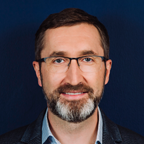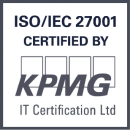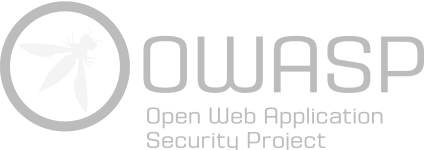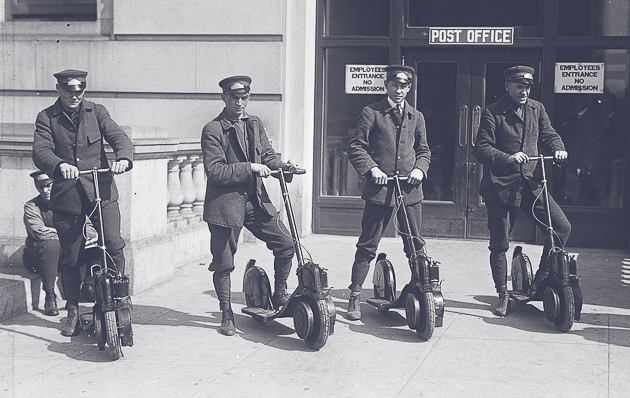
Finding a company to work for today is way different than it was 20 years ago. These days, we want a job that’s way more than a paycheck — which means it’s often imperative to check out a company’s internal culture before you join.
Gabriel Matuschka, Salv’s lead investor, shared at our team event why he chose to invest in us:
There are lots of humans in Europe that think it’s great to obsess around getting the most scooters on the street which is fine too, but I’m not sure it solves a really big world problem. I’m excited about people who are audacious enough to do something hard, and that is important.
But how do you know whether you’re being sold a load of BS about what it’s like to work there or whether it’s really as great as the company says? It’s hard to know. I’m hoping this post will be able to better answer that question for you, at least about Salv.
Why do I personally care?
Yes. I’m a co-founder. Yes. I’m technically the COO. But, titles, honestly don’t mean a lot to me. Company culture matters way more.
So far, I’ve been really privileged to work for a wide variety of organisations.
- Integral Designs (manufacturing, 15 colleagues)
- Bell Canada (telecom, 50,000 colleagues)
- ING bank in Holland (125,000 colleagues)
- Skype (from 600 to 2,000, then 200K colleagues at Microsoft)
- Wise, formerly TransferWise (80 colleagues when I started, 1,700 when I left)
Especially after being a part of a few fast-growing startups, I’ve become something of a company culture nut. I’ve seen, firsthand, the creation of really special company cultures. And I’ve also witnessed some of those same cultures weaken with poor leadership and company policies. I’m an avid reader, and I’m always looking for ways to change these outcomes for the positive.
In fact, though I started in Wise as a growth analyst, my last few years there I shifted to a role and team that would put me in a position to help nurture, protect, and develop the incredible culture, communication, and leaders that had grown up inside. By the time I left in early in 2019, Wise had 1,700 employees and still had an incredible 4.7 Glassdoor review rating.
I only say this to help you understand that when I say I care about how companies work, I really do. I want Salv to be a place that helps everyone bring their best. So we can achieve our ambitious mission. Because I know that developing an incredibly special culture is one of the only ways we can be sure we’ll make it.
So allow me to chat, in a bit more in depth, about each of our points of why you should join us.
Awesome team
Our team consists of mission-driven, kind people who’ve proven that they can make awesome things happen in organisations like Wise, Skype, Pipedrive, Veriff etc.
Salvers have a lot of experience.
Recently, Jaanus on our team said it best, “We’re not children.” Many Salvers have already worked their way through startups like the ones mentioned. They’ve led teams. They’ve led projects. They know what they’re doing. And that’s almost exactly the opposite of most founding startup teams these days. To many of us, because we’re starting with a really solid foundation of domain experts, it means Salv has a way better shot of making it.
Salvers have a lot of energy.
Not every Salver is a been-there-done-that kind of person. We need fresh perspectives to help us innovate and find what we’re missing. Which is a big part of why, for some of our team, this is their first real job after uni. Their energy, creative ideas, and can-do-it attitude they bring is something we cannot live without.
Salvers want more than a job.
At one point, we had our offsite in Budapest to cheer on a fellow Salver. Kristi is on the Estonian national women’s volleyball team, and her team had playoffs in Hungary. So why is Kristi, already a successful athlete, a part of Salv? Because she feels like she can make a difference with what we’re doing. And that’s how many of us feel. We don’t want to work for a company that just does stuff. We want to know that what we do every day is contributing to a better future for us all.

Freedom
And the responsibility that comes with it. You can make and own a lot of decisions. You can figure out how to solve customer problems and prioritise in the way that maximises impact.
Freedom isn’t easy.
Today, nearly everyone thinks they want the freedom to do what they want. But far fewer understand what it takes to thrive in a free environment. Freedom is a lot more work than most of us realise. And it often means you’ll get a lot of feedback — not all of it glowing.
Freedom can be overwhelming.
It might feel a bit like chaos. Or being lost. How do I prioritise? What brings the most impact? Where should I focus? What tools should I use? Will this scale? Do we do this in-house or try to find someone outside to help us? How do I test this? What should I do first? Why this and not that? Is it time to pivot? How do I know this was the correct decision? Freedom can come with a lot of extra worries.
Freedom often comes with a lot of feedback.
At Salv, it’ll be unlikely that you’ll have a lead that would answer any of these questions for you. But you’ll have a whole team of Salvers that will probably be happy to collaborate, help, feedback, or brainstorm when you’re stuck.
Remote work
You can choose when & where your work, as long as you have an impact on customers and are aligned with the team.
We have semi-unusual work habits.
As I write this, only a few of us are in the office. The rest are working somewhere else or will be working odd hours. Typically, less than half the team are in the office at any one time. I myself often leave at 4, go to the gym, and continue after I put my kids to sleep.
But if we’re hardly in the office, how do we know work is getting done? We focus on impact. At Salv, it’s not about when or even how many hours you work. It’s your impact that’s important.
We measure our work by impact.
Measuring impact is hard, as it is at any other organisation. It’s different for every role. But, right now, at Salv high impact looks like this:
- Customers are flowing through our sales funnel and are excited to work with us.
- Our product improves in leaps and bounds every week.
- Everyone in the team is learning how to make us more successful tomorrow.
We work hard to stay in sync as a team.
We have several rituals and tools to help us keep in sync as a team. We have a weekly team call where we take turns presenting back important work. We add extensive notes and comments in notion (our internal wiki) about our progress during the week. We have all-team off-sites on where we align on the big picture and make plans for our future. And, in our day-to-day, we rely heavily on Slack and hangouts for communications. Right now, it’s working.

Meaningful job
Possibility to make the world a better place for everyone.
We’re working for a cause we care about.
At this point in life, I can’t work for a company whose mission I don’t believe in. Or, worse yet, a company who doesn’t even have one.
To me, it means the world that with every effort I put in, the world gets a tiny bit better. I’ve been fortunate to contribute my talent towards 2 incredible missions:
- Skype. Make communication free.
- Wise. Make money borderless.
But Salv’s mission is the most rewarding one I’ll likely ever work on in my lifetime. “Beat financial crime.” It also happens to be the boldest.
We’re solving a huge, real problem.
There’s an insane amount of crime today. An overwhelming 98–99% of it passes through the global financial system undetected. A million euros a minute is siphoned to criminals through Europe alone. Small and large financial institutions alike — not to mention real estate, casinos, and transport companies — have an incredibly long way to go in order to get financial crime in check.
We know we can make a difference.
We’ve already gathered some incredible talent and domain expertise in our team. So, for our part, we’re doing what we can to scale their brilliance into a technology to help millions. We’ll start by giving our platform to 10s of companies, then 100s and, before we know it, 1000s.
We really do think we can contribute in a massive way to beating global financial crime. It’s too depressing and too big not to try.
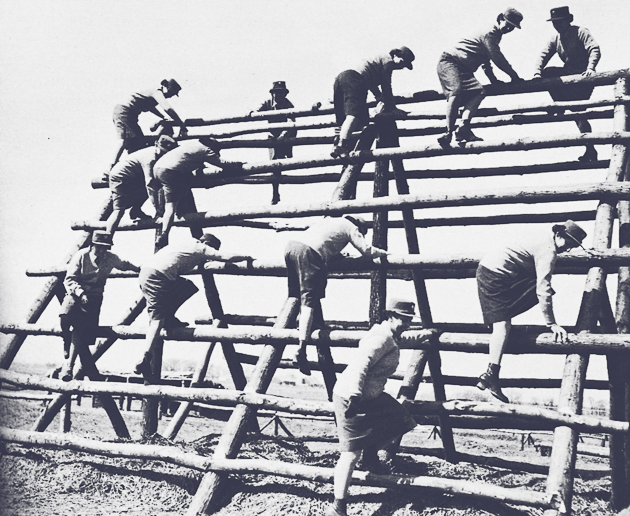
Interesting challenges and learning opportunities
There’s going to be a diversity of challenges. Some of them you’ll have never done before and completely suck at. But you’ll learn.
We are still really early stage.
Right now, Salv is still really early stage. There’s a bunch of stuff that’s just in the idea stage but still needs to become reality. We need to hire some engineers, junior and senior alike, who want and can build from the ground up. At least for me, this is the most exciting time.
We build products from the ground up. In a diverse team.
Let me give you an example of what our process looks like.
In our field, sanctions can be a huge pain point for financial institutions. During one hackathon, ten Salvers — engineers and product folks alike — gathered offsite to decide how to bring our sanctions product into the world. Taavi and Ester (product people) had built something like this before. Jaanus (UX designer) had researched extensively. Jordan (product engineer) and Erik (data scientist) had started pulling some data and code prototypes together. As a team, they spent a lot of Friday figuring out how exactly they want to build it. What parts are must-haves? What technologies will they use? Who will do what, and when? How will they evaluate whether it’s working? All of that flows into a plan that will structure the team’s efforts over the coming weeks.
We all get to wear a bunch of different hats.
At this stage, this means everyone takes on a ton of responsibility. Engineers, in particular, need to develop code, but also support customers. Nearly every Salver will get direct customer feedback and many of our team members, especially developers, will need to sometimes visit our customers onsite. In Salv, we often have to do it all.
Is it scary? Yes. Is it intimidating? Definitely. Will you mess up at some point? Absolutely. But, if you want to learn what’s really useful about what you’re building, it’s exhilarating. And the fastest way to improve the product. And yourself.
Early-stage options
Every member of our team will get options. No guarantees but if we’ll succeed, they could be worth a lot.
We’re not like most startups.
According to a quick google search, an overwhelming 90% of startups fail today. But, according to our investors, we’re not like 90% of startups. We already have a lot of experience and, according to them, that’s a huge boost to long term success.
We have a lot propelling us forward.
We already have an incredible team. We have a lot of support from investors and partners. We have enough funding to make it happen and attract a talented team. We have a mission that’s working to solve a global crisis that people are just now getting serious about. But, still, we can’t guarantee that will mean we’re successful.
We know joining early is crucial for shares.
But, if we do manage to create something valuable in Salv, I know from 2 previous experiences — at Skype and Wise — that joining earlier is better in terms of options. Not just a little, but a lot. Joining a startup a few months later can easily halve or more the value of the options. So if you’re interested in us or another early-stage startup, my advice from experience is make your decision fast, either way.
In the end, though, we’re here primarily for the mission. When our company’s value increases, that may be a sign we’re making great progress. But the value of the company isn’t our goal — beating financial crime is.
Positive chaos
No corporate BS, no bosses who say what to do, no boring job descriptions with inflated titles. Just a place where you can make the right things happen. Oh. And we also pay. ;-)
We are still in constant flux.
At this point, we still have a relatively small team. And we are still a new company. That sometimes means that what’s true that the beginning of the day might not be true at the end.
For example, Kristin asked for and got a slot to speak at an event in Lithuania that happened a week later. That meant Sergei had a day to decide whether he’d skip coding to spend 3 days travelling, networking, and speaking.
We are learning as we go.
Early stage means we aren’t always sure of our next step. Did Kristin choose the right event? Did Sergei make the right decision? We’ll probably do a retro with Sergei and Kristin and the people who work closely with them in a few weeks’ time to decide whether it was a good choice, and whether we keep making those same choices.
We are a dream come true for those who love to order chaos.
To some, a chaotic, unordered work environment is a nightmare. To others, it’s a dream come true. It will never be easy to decide how to use your time. And you’ll regularly feel the tension between fighting short term fires and keeping your eye on the long term goals. But we think it’s worth it.

If you want to know what it’s like to be a Salver, explore our Career page and get in touch.
I can’t wait to see where we’re at in a year,
Jeff
Co-founder, COO, and Crimefighter
